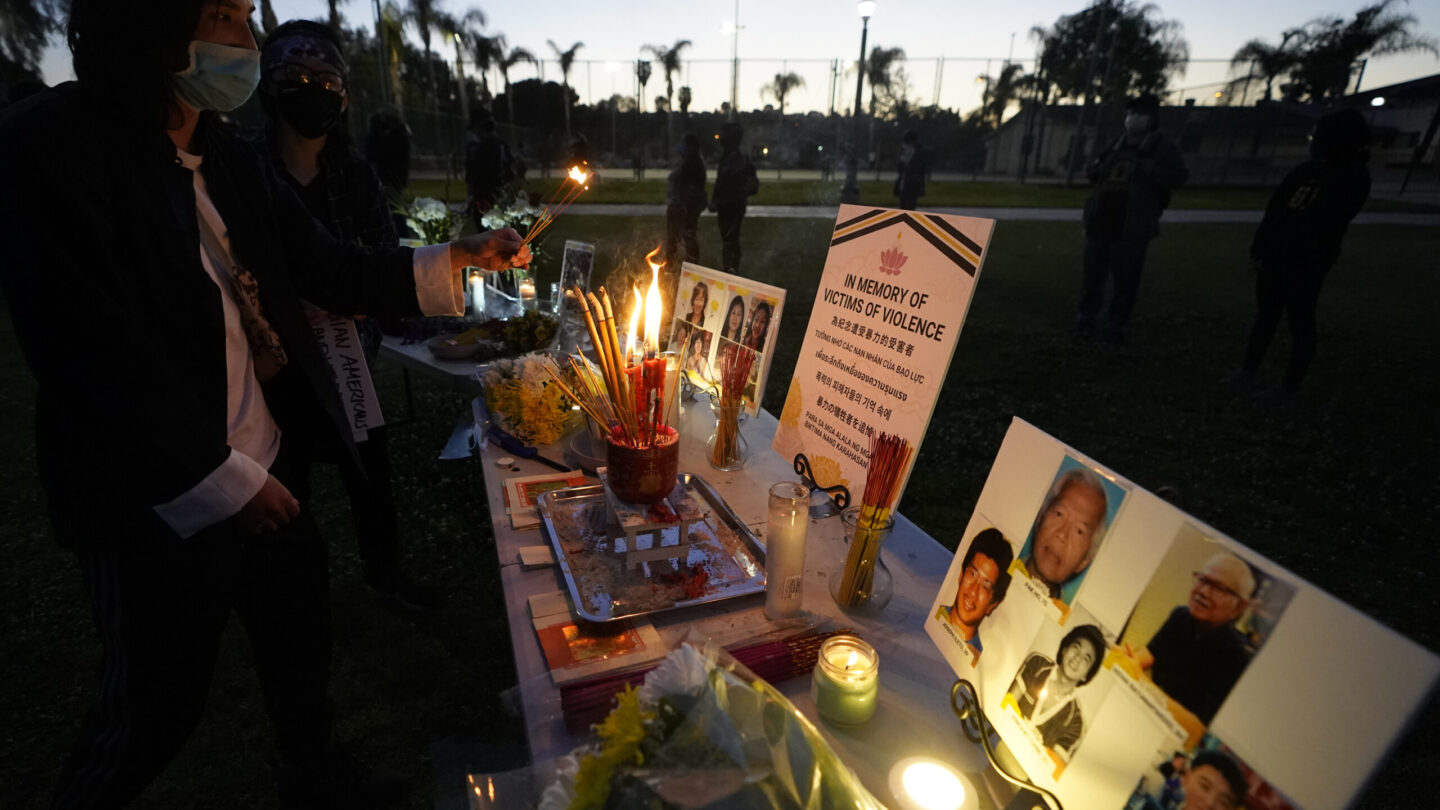Asian American communities remember those killed in metro Atlanta spas three years ago

Damian Dovarganes / AP Photo
Three years ago, a white man killed 8 people, including 6 Asian women, in a shooting spree across metro Atlanta. He’s serving a life sentence in Cherokee County, and his death penalty trial drags through Fulton County courts.
This year, as Atlanta remembers those killed, Asian American leaders are calling for community resilience.
“This is close and painful and deeply personal,” said Rep. Michelle Au at the state Capitol this week in one of several events remembering the victims of the March 16 shooting. Au is the chair of Georgia’s Asian American Pacific Islander caucus in the legislature.
“From that tragedy came more.”
She’s talking about the rise of awareness of racism and attacks against Asian people fueled by political rhetoric around the COVID-19 pandemic. The killings happened at a time of increasing violence against AAPI communities that continued to increase in the year after the Atlanta killings.
But since then, AAPI communities have shown resilience by making their presence known.
Georgia elected the most AAPI representatives in the history of the state, and the AAPI caucus was formed with one of the highest numbers of AAPI legislators in the country.
Moms in Atlanta developed curriculums teaching about Asian Americans in history that fit into state educational standards. Lunar New Year celebrations have grown and spread around the region.
And AAPI communities are turning inward to make sure mental health is prioritized while facing the threat of racist violence. Asian Americans Advancing Justice hosted a panel at the start of the week to open conversation around mental health in AAPI communities.
“I think it’s a topic that, often as Asians and Asian Americans, that we haven’t been modeled by our elders to talk about, how we carry traumas and griefs,” said artist Gyun Hur. She grew up in Georgia after moving to the state from South Korea as a young teen.
Hur expressed how important the community has been in processing grief.
“Communities and friends really helped me over the years,” she said. “I couldn’t go to my parents and talk to them…because I knew that they were working so hard.”
Hur and those at the panel worked together to finish a blown-glass art installation at the AAAJ-Atlanta office as part of the remembrance.
The Atlanta Justice Movement will hold a vigil Saturday at the Korean Community Center in Norcross at 5 p.m.








